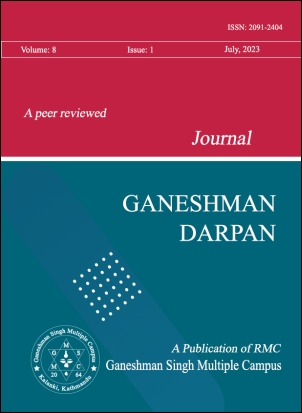Concept Mapping: Unleashing the Power of Visual Learning in Science Education
DOI:
https://doi.org/10.3126/gd.v8i1.57330Keywords:
Concept mapping, Conceptual understanding, Knowledge retention, Science education, Quasi-experimental design, Visual learningAbstract
Concept mapping is an effective approach for improving learning in science education by using visual representations of knowledge. The purpose of this quasi-experimental study is to determine the effectiveness of concept mapping as visual representations in increasing understanding of concepts and knowledge retention among secondary school students studying science. The students in the research are divided into two groups: the experimental group (N = 45), which gets instruction using concept mapping methods, and the control group (N = 50), which receives instruction using conventional methods of teaching. Participants in this study were chosen at random from two public secondary schools in Kathmandu and the Lalitpur district. To evaluate both groups' understanding and recall of scientific concepts, a pre-and post-test approach was used. The outcomes of this study will give important insights into the effectiveness of concept mapping as a method of instruction in science education. It is hypothesized that students in the experimental group who participate in concept mapping activities will show better conceptual understanding and retention than students in the control group.




